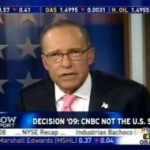Today marked a black day for Barclays Plc. as it was cited twice by British financial regulators for manipulating the price of gold on June 28, 2012 and a day after the bank was fined a record £290 million for manipulating the London inter-bank offered rate (LIBOR). Barclays, which dates back to 1896 when it was founded by Quakers (who would probably be turning over in their graves if they could see the current management), is just the latest in a number of US, UK and Swiss banks which have been investigated and cited for LIBOR price fixings, tax evasion and separate activities in mortgage fraud which helped cause the 2007 global recession.
The recent recession was so severe that it has taken until 2014 for the US to emerge from the recession, as measured by employment figures. Many of these global banking names are the same ones which encouraged investors and mortgage buyers to trust them with their savings, retirement accounts and mortgages. The problem is that as the U.K. Financial Conduct Authority said, Barclays was guilty of “failing to adequately manage conflicts of interest” with its customers between 2004 to 2013.” That must have been some 11-year-period. If U.S. regulators were to cite Wells Fargo, JP Morgan, BankAmerica, Citibank, the now-defunct Washington Mutual, and other household bank names, they could also use the exact same language.
Most recently (May 30, 2014), Bloomberg News reports that U.S. authorities are seeking over $10 billion from BNP Paribas to settle federal and state investigations into the lender’s dealings with sanctioned countries, including Sudan and Iran. This marks another low point for global banks who have done business with the enemy in the last two world wars and now in the undeclared wars in Iraq and Afghanistan and against other rouge nations.
The main difference in these rogue bank lending actions is that the most recent amounts are exponentially larger than they were during World War II, for instance. But what these incidents all have in common is that bank capital has absolutely no moral or ethical bounds when it comes to perpetuating the growth of its own capital.

Indeed, “conflict-of-interest” should become an essential part of all branding messages of major banks and many investment firms since that is the main engine they use to generate the excessive profits which drive top-level executive salaries. For his part, Barclay’s CEO Antony Jenkins was paid £1.1 million in salary and was forced to relinquish a reported 2013 bonus of £2.75 million due to the bank’s litigation, penalties and fines.
Were it not for conflicts-of-interest, the goals of investor-customers and investment management would become more aligned. The financial industry’s original slogan, “Never give a sucker an even break,” could be relegated to the dustbin of history. But conflicts-of-interest are part of the DNA of the financial industry, plus they are too profitable, so the slogan remains valid today.
This also explains why the financial services industry has fought the adoption of the universal fiduciary standard for over a decade. Simply put, giving the average investor objective information about why certain investment products were chosen over others, as well as clear fee and expense data, would derail the entire financial product sales process.
What This Means to the Average Investor
While the average investor or mortgage holder may hear about these bank failures and consider them isolated incidents, they are not. This type of near-criminal and unethical behavior is an essential part of the financial services industry to some degree. The reason is that fees, conflicts-of-interest, the partial disclosure of material information, selling in front of customers, financial engineering tricks and the pressure to sell and generate commissions all produce excess profits which drive top managements’ bonuses. All of this is essential to the entire industry. This puts the interests of the average, less-informed investor at the mercy of the better-informed, commission-driven salesperson, and ultimately, entire banks and investment firms. This disproportionate informational balance fueled by the conflict-of-interest position happens every day. (See this list of bank failures and other bank failures from 2008 to the present.)
For this reason, compounded by indictments and full-scale investigations by financial authorities worldwide into price fixing and other regulatory abuses, it is entirely normal for the average investor to consider the world’s largest banks as criminal entities.
This is strong language, but it is the sole responsibility of these large global banks to convince their customers otherwise. This is more than a PR problem. Average investors should consider this a systemic organizational problem which will not change.
Calling global banks “criminal entities” should not be considered an outlandish or unsupported observation. “’To put it badly,’ says the Nobel Prize-winning economist (1971) Joseph Stiglitz, ‘there are two ways to become wealthy: to create wealth or, to take it away from others. The former adds to society. The latter typically subtracts from it, for in the process of taking it away, wealth gets destroyed.’” Stiglitz, a refreshingly uncensored economist, has also said “‘Some of the most important innovations in business in the last three decades have centered not on making the economy more efficient but on how better to ensure monopoly power or how better to circumvent government regulations intended to align social returns and private rewards.’”
Kudlow: No Victims in LIBOR Price Manipulation

Not only are price manipulation of LIBOR and gold prices a global scandal, they also harm millions of individuals worldwide whose loans and other credit interest rates are tied to these less-known benchmarks. Yet defenders of laissez faire capitalism, such as CNBC pundit Larry Kudlow, can defy common sense by saying that these price manipulations are essentially victimless crimes.
In his show, Kudlow said that Barclays, which agreed to pay $450 million in fines in June 2012 to the U.S. Justice Department, was a victim of aggressive prosecutors. On his show, Kudlow offered the following apology for his friends at Barclays: “Maybe you’re right, the victim was the lender, that was Barclays,” Kudlow said. “The Justice Department says this could be a criminal prosecution. I don’t get that. Who are the victims? Who are the victims?”
The victims are anyone who has a mortgage rate tied to LIBOR. This could be millions of Americans whose largest single monthly expenditure is their mortgage. Kudlow insisted that the LIBOR price fixing has nothing to do with how millions of Americans have to allocate their declining wages for what is commonly their largest single monthly expenditure (their mortgage), whose payment may have been manipulated against them. Given Kudlow’s ridiculous statement, it is amazing CNBC keeps him on the air as an informed commentator when he is in reality, despite his sharp appearance and mastery of economic language, a puppet for defending the global shortcomings of laissez faire capitalism.
What Kudlow neglects to say is that all the major banks involved in the LIBOR, mortgage and gold price fixing scandals could not have occurred without a blind eye from national regulators. As David Harvey notes in his book, Seventeen Contradictions and the End of Capitalism: “The illegalities practiced by Wall Street in recent times could not have occurred without some mix of neglect or complicity on the part of the state apparatus.”
Conflicts-of-Interest Are the Rule

In the larger context, such as the eroding of pension rights and the fight against adopting a universal fiduciary standard in the financial services industry, the superiority of conflicts-of-interest are paramount against the rights of the average investor to gain an informational advantage or even to give a sucker an even break.
As noted on this site before, conflicts of interest are the rule. They exist in 401(k) advice , financial product sales, mutual fund sales and are encouraged by deficient financial regulators who frequently represent industry interests over those of average investors. As Harvey writes, “The stealing back of privileges once acquired (such as pension rights, health care, free education and adequate services that underpin a satisfactory social wage) has become a blatant form of dispossession rationalized under neoliberalism and now reinforced through a politics of austerity ministered in the name of fiscal rectitude.”
Global price fixing and the current politics of austerity are part of today’s financial reality. All investors should note that the cards are stacked against them. And to add insult to injury, when home owners lose thousands of dollars over their lifetimes due to price manipulations of their mortgages, Kudlow says they are not even victims.











